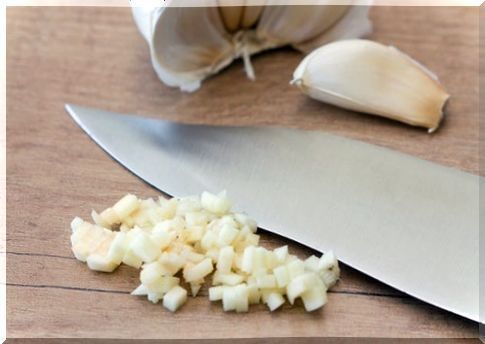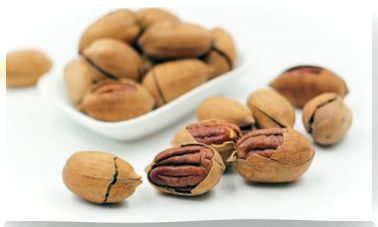Does Consuming A Garlic Clove Daily Have Benefits?
It is possible that we have ever heard mention that, to prevent certain diseases (especially cardiovascular ones), it is advisable to consume a clove of garlic daily and, if possible, on an empty stomach. Now, why is this said? Is the trick really effective? Let’s see it next.
Garlic is a very common food that offers a lot on a gastronomic level. It helps enhance the flavor of various preparations and give them that exquisite taste that it never hurts to enjoy at the table.
Throughout history, garlic has not only been incorporated into food recipes, but also into remedies, and it has often been believed that because of its strong aroma and flavor, it has medicinal properties.
Garlic has good potential, but it is not “powerful”
Not only the aroma and taste of garlic have suggested that this food may have medicinal properties. At various times, it has been considered to have various compounds capable of preventing and curing fungal infections and cardiovascular diseases.
In general, garlic has been attributed several properties, antibacterial, anti-inflammatory, antifungal and antioxidant. And for some decades, all of these have been associated with the allicin content of food.

Its antibacterial properties
For several decades it has been commented that allicin could have antibacterial potential. However, such an effect has been observed in the laboratory, under specific circumstances (in vitro).
In a study published in the Eureka Magazine on Science Teaching and Dissemination in 2011, an in vitro test was carried out to analyze the antimicrobial property of this food against bacteria present on the surface of the skin.
In this study, although it was concluded that garlic can be considered a “vegetable antibiotic”, it must be taken into account that its properties vary depending on several factors (if it is whole, crushed, fresh, subjected to a temperature, the type of fungus that has infected the skin, etc.).
It is important to clarify that even though positive effects have been observed in this and other laboratory studies, garlic has not been shown to be more effective than drugs. Therefore, it is proposed as a complement to medical treatment, not as a cure for infections as such.
How effective is it?
In a review on the cardiovascular effects of garlic, the following is clarified:
- There is no consensus as to the minimum dose required to obtain beneficial changes.
- Given the loss produced during thermal and culinary preparations in active chemical compounds, it is advisable to take raw garlic or in specific preparations.
- It is important to note that the US Food and Drug Administration has not approved garlic (or products derived from it) as cholesterol-lowering agents.
- In view of all the above, it is considered that the most advisable thing to include garlic, in moderate quantities, within a balanced diet.
- The lack of consensus on the evidence found in the different studies carried out highlights the need for further research on garlic and its properties.
At the moment, it is not proven that eating a clove of garlic a day helps strengthen the immune system, cure or prevent diseases, disinfect or help detoxify the body. However, this does not mean that those who want to eat it cannot. If you wish and your doctor indicates that there is no contraindication in this regard, then there is no problem.
By itself, garlic is not a foolproof solution or preventive method against disease. Therefore, consuming a clove of garlic (or four) a day, on an empty stomach to improve heart health, prevent infections or treat anemia, does not represent a significant contribution.
What is there to keep in mind?
- There are certain components in garlic that may have potential for health benefits.
- There is a lack of consensus on what are the most appropriate doses and forms or presentations of these components. Therefore, it is unknown whether consuming a clove of garlic daily can provide significant benefits.
- More research is needed in this regard.
- One of its compounds (allicin) has proven to have an antibiotic effect in case of fungal infection ( Candida albicans). Be careful, this does not mean that garlic can be used at home in any way to treat this infection, but that it has the potential for it and that drugs could be developed to improve the existing treatment.
Garlic is a good option in a balanced diet

In addition to allicin, garlic contains an interesting range of B vitamins and vitamin C, as well as various trace elements such as calcium, iron, magnesium, phosphorus, sodium or zinc. However, this does not make it a superfood, but a recommended option, within a healthy lifestyle.
In conclusion, garlic is a food that we can incorporate into the diet, like any other. We can enjoy the flavor it gives to food and consider it an ingredient capable of providing us with multiple delicious recipes.
Now, considering it a superfood, a substitute for a meal or a treatment prescribed by the doctor, is not recommended, since it is still necessary to clarify several points about its effectiveness.









